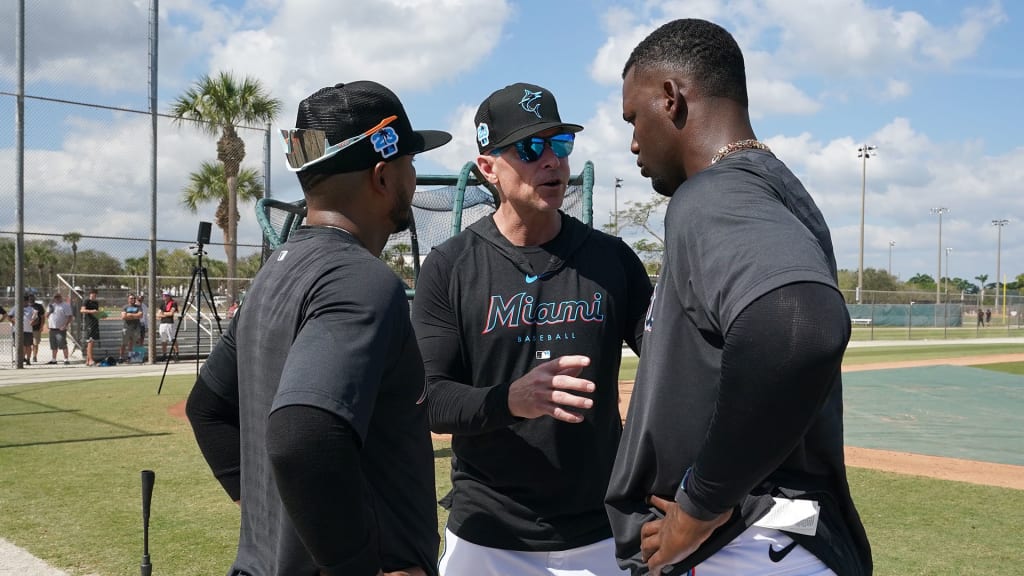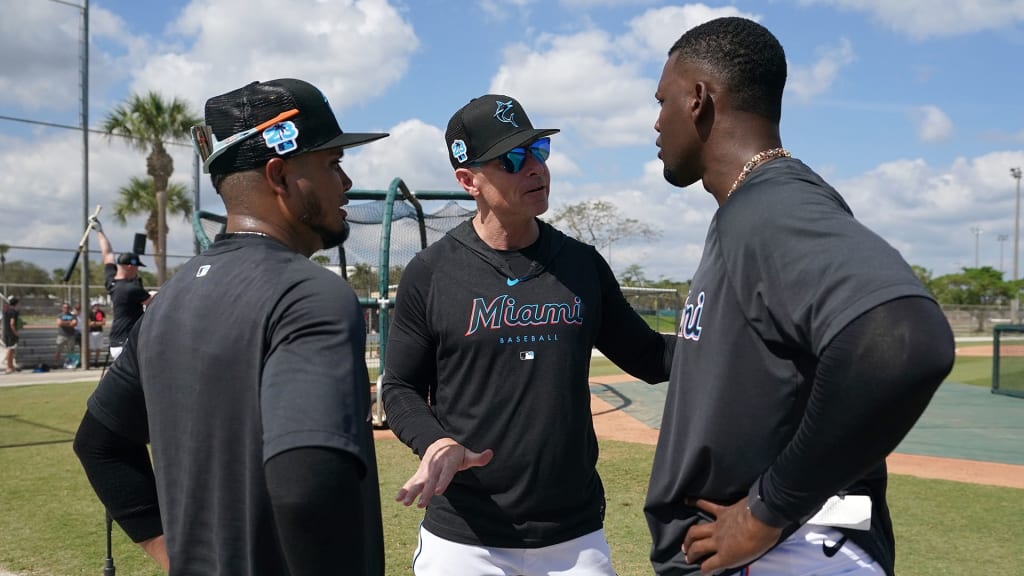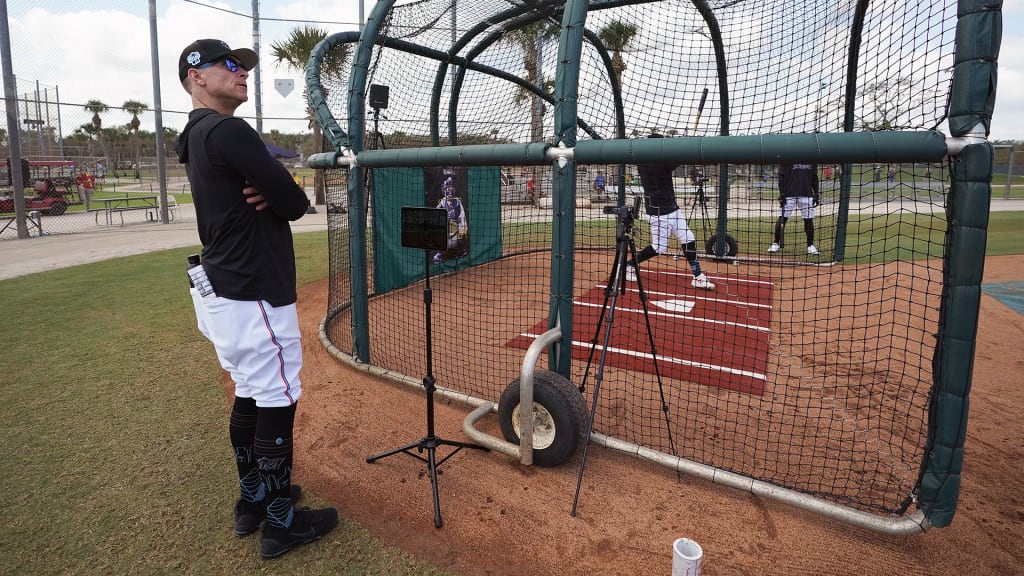
JUPITER, Fla. -- Before signing Jean Segura and trading for Luis Arraez to improve their lineup, the Marlins hired Brant Brown to be the hitting coach on first-time manager Skip Schumaker's staff.
Brown spent every day of the offseason speaking with the hitters, offering lessons via FaceTime and developing relationships to the point where he virtually met some of their parents, like Jacob Stallings' dad. John Mabry and Jason Hart also joined Schumaker’s staff as assistant hitting coaches to form what they endearingly call "Miami Thrice." With each batter having individual needs, the trio can divide and conquer by gameplanning and watching video.
What's Brown's philosophy?
Keep it simple. There are so many moving parts to hitting, so Brown doesn't want his hitters thinking about a million things at once when trying to execute at the plate. He tries to build a foundation by compartmentalizing each section with basic principles.
"More simplistic than difficult at the beginning to basically increase the value of the hitter, help them become a better baseball player -- understand the game, what it's calling for -- and then how to actually study for a pitcher,” Brown said. “Also at the same time knowing your own weaknesses. Before you can exploit your enemy's weakness, you have to know your own."

How much stems from his previous coaching stints and playing career?
Brown posted a .746 OPS in 424 MLB games across parts of five seasons from 1996-2000. The 51-year-old started his post-playing days in the private sector before working with the Rangers and Mariners. Most recently, he spent three seasons as the Dodgers' hitting coach after serving as the organization's hitting strategist from '18-19.
"In Los Angeles, you had the means to have a lot of different measuring instruments, and there was a lot of things at your disposal, and then trying to say, 'OK, there's too many things. What are we going to isolate on?'” Brown said. “But at the same time, you get to learn about all these different things. Whether you use them or you don't use them -- either add them to the list or scratch them from the list.
“You didn't realize that when you were there, and then you come here [and] you're like, 'OK, I learned a lot, but how do I take this information and filter it down enough to where there's just a simple three big things and we keep it simple?' But we all know that it's hard. It's not really that simple. Build the layer, build the cement, and then if we want to add things later, we add things later."
Brown works in tandem with the analytics department. After the computer populates data, it is his job to take that information, filter through it and communicate it in a way that's easily comprehensible.
"That's one of the most important things for me is when we're in the dugout, when we're in the thick of it, and we need you to execute, I am going to be talking to that hitter,” Brown said. “So understanding how they like information: ‘What is easy? What do you like?’ We've been going through with all the guys: 'In a sentence with eight seconds, how do I say it so you're clear, and you know what to do and you go execute?'"

How will this message align across the organization?
Brown had coordinators, Triple-A and Double-A hitting coaches on team calls to get everyone on the same page. For the lower levels, the philosophy will be simplified with a bit less information. The goal was to receive feedback on what the system did before his arrival and what could be done to improve. Brown was once in their shoes as a Minor League coach during a regime change.
"Laying out, 'These are our principles, this is how we're going to gameplan, this is what we're going to talk about, these are the big principles with the mechanics. I want to give you freedom to coach, but this is kind of a menu to do that,'” Brown said. “If the lines get crossed, and it gets too broad, and they're going from level to level and hearing all kinds of different stuff, that confuses your player and does not help your organization.
“So just making sure that wherever they go, they're going to see the same stuff, they're going to hear the same stuff, they're going to do the same stuff. So then we get here, no one's shocked. It's just a normal day."
